[Interview] Haona Chao: Bridging Cultures and Bringing Korean Cuisine to Manipur's Heart
2024-11-20In the bustling city of Imphal, Manipur, a small yet vibrant cloud kitchen called Haona Chao has become a beloved name among food enthusiasts. Serving authentic Korean cuisine, this venture is the brainchild of Surbala Kangabam—a news anchor and entrepreneur whose journey is as inspiring as it is flavorful. In this exclusive interview, Surbala opens up about her passion for Korean food, the challenges of running a business during a pandemic, and her hopes for the future of Haona Chao.
Q: Can you tell us a bit about yourself and what inspired you to start your cloud kitchen, Haona Chao?
Hello to all the readers and K-food lovers. My name is Surbala Kangabam, and just like many of you, I am a huge fan of Korean food. I’ve been working as a news anchor with ISTV Network, one of the largest local TV channels in Manipur, for almost a decade now.
My love for Korean food inspired me to open Haona Chao, which translates to “mass-se-ge-juseyo” in Korean. I was fortunate to receive culinary training under Korean chefs in Delhi and Gurgaon. The idea of starting the cloud kitchen came during the peak of the COVID-19 pandemic in 2020. While it was an unfortunate time for many, it gave me the opportunity to bring my love for Korean food to life. With everyone confined to their homes and relying on food deliveries, Haona Chao was born, and it has been spreading the love of K-food ever since.

Q: You mentioned in an earlier interview that the lockdown inspired you. Could you share more about how the pandemic helped shape your business vision?
Oh yes, the pandemic was truly the starting point of our journey. Initially, it was a mix of good and bad days—it was hectic and challenging because we had no staff and very limited resources. I am deeply grateful to my family for being so supportive and helping me during those tough times.
The pandemic shifted people’s habits towards delivery services, and I realized that a cloud kitchen could bring authentic Korean dishes directly to customers’ doorsteps. This delivery-first model became the foundation of Haona Chao.
Q: Were there any specific influences that guided your decision to start a cloud kitchen, such as your love for baking and cooking or the K-pop culture?
Definitely! K-pop culture played a huge role. Like many others, I grew up watching K-dramas, which introduced me to Korean food and its significance in Korean culture. Food in Korea isn’t just about eating—it’s about community and shared experiences. That idea really captivated me.
While I’ve always loved cooking, my admiration for Korean food and culture motivated me to create a space where others could experience authentic Korean dishes.
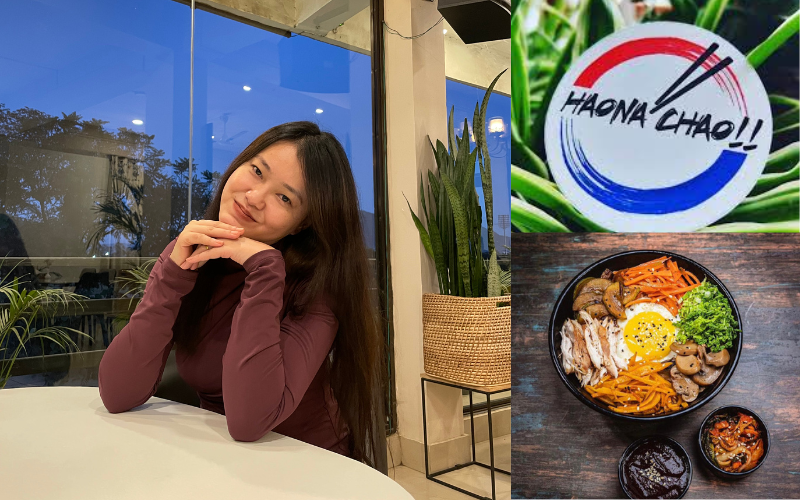
Q: Starting a new business, especially during challenging times, is never easy. What were some of the key challenges you faced in the beginning?
The biggest challenge was starting with no staff and very limited resources. The pandemic made it difficult to source authentic ingredients, and with no dine-in option, we had to rely entirely on delivery platforms. Ensuring that the food maintained its quality and authenticity during transit was another challenge. Additionally, building an online presence was critical, but it required significant effort, especially with frequent internet disruptions in the region.
Q: How did you manage with limited resources and other challenges early on?
I had to be resourceful. The pandemic disrupted supply chains, so I often adjusted the menu based on available ingredients. I sourced fresh produce from local farmers and even turned to online marketplaces.
To market the business, I created social media accounts and collaborated with local food bloggers and influencers. These efforts helped spread the word about Haona Chao. It wasn’t easy, but these challenges pushed me to think creatively and adapt quickly.
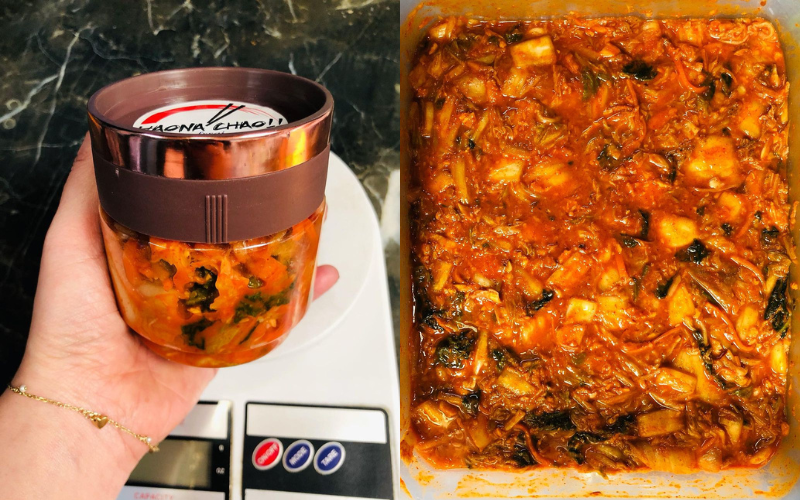
Q: How has your experience as a news anchor influenced your approach to running a business? Do you find any similarities between the two roles?
Being a news anchor and running a cloud kitchen are very different, but there are some similarities. My live broadcasts taught me to stay calm under pressure, which has been invaluable in managing kitchen operations during busy hours.
The organizational skills I developed as a news anchor helped me streamline processes in the kitchen, ensuring efficiency and consistency in every order.

Q: In a region as vibrant as Manipur, how do you view the growing popularity of Korean cuisine, or K-food? What factors do you think are driving this trend?
Manipur is a diverse state with a rich cultural heritage, and the growing interest in Korean cuisine here is amazing. The popularity of K-pop and K-dramas has played a significant role in driving this trend.
Additionally, there are cultural similarities between Manipuri and Korean cuisines, such as a love for fermented foods and spicy flavors. This makes dishes like kimchi and spicy ramen especially appealing to local palates.
Q: Authenticity is key, especially for Korean cuisine. How do you ensure the authenticity of your dishes?
Authenticity is at the heart of what we do. I rely on verified Korean recipes and techniques that I learned during my training with Korean chefs. Maintaining consistency in taste and presentation is also critical. Sourcing authentic ingredients is a challenge in Manipur, but I work hard to ensure that every dish reflects the true flavors of Korea.
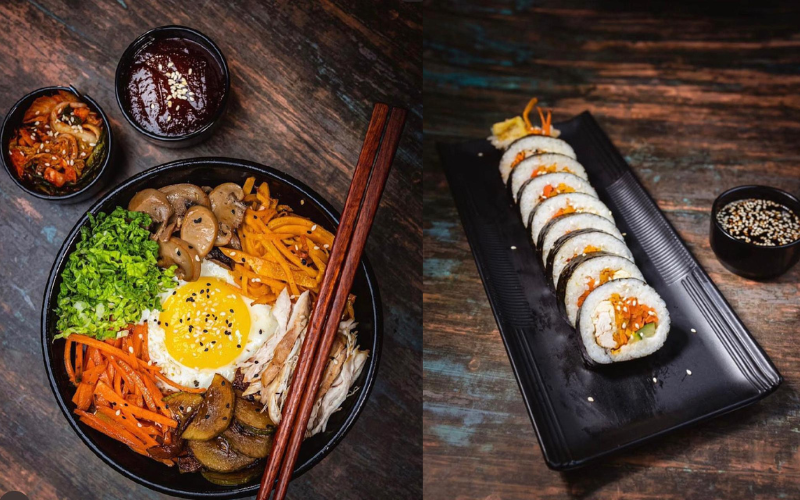
Q: The recent disputes in Manipur have impacted many businesses. Has Haona Chao been affected, and if so, how?
Yes, the ongoing conflict has been challenging. Supply chains were disrupted, leading to shortages of essential ingredients. Blockades, curfews, and limited transport options made it difficult to operate smoothly. Additionally, frequent internet shutdowns severely impacted our ability to communicate with customers and manage online orders. Despite these challenges, we have managed to adapt and keep moving forward.
Q: What measures or strategies have you adopted to maintain stability during these times?
Staying physically and emotionally strong was crucial. When internet shutdowns affected our cloud kitchen, we set up pop-up stalls during curfew relaxation hours to stay connected with our customers. We also improvised our marketing strategies and remained hopeful through the tough times. These measures helped us survive and continue serving our customers.
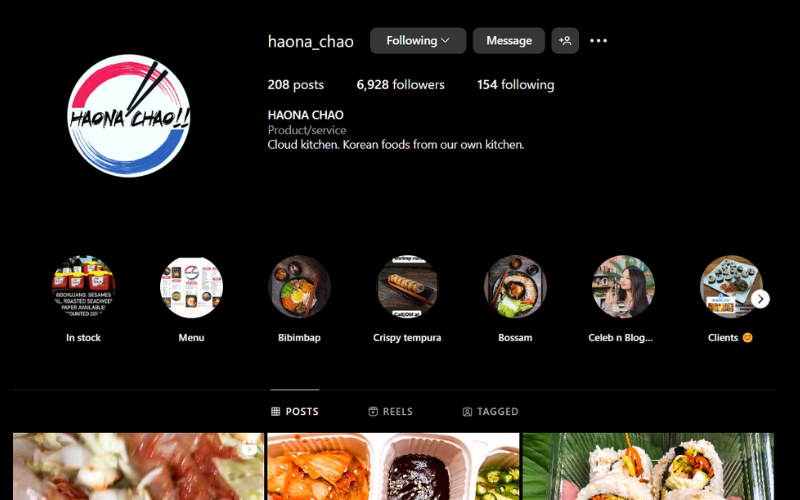
Q: Since you started Haona Chao, how has the business grown or evolved?
The journey has been incredible. Over the past four years, we’ve trained over 30 staff members and now operate with a team of 7+. From rolling kimbap alone to running a kitchen with rotational shifts, we’ve come a long way. One of our proudest moments was being nominated by a delivery partner for a women entrepreneurs’ award. Moments like these remind me why I started this journey.
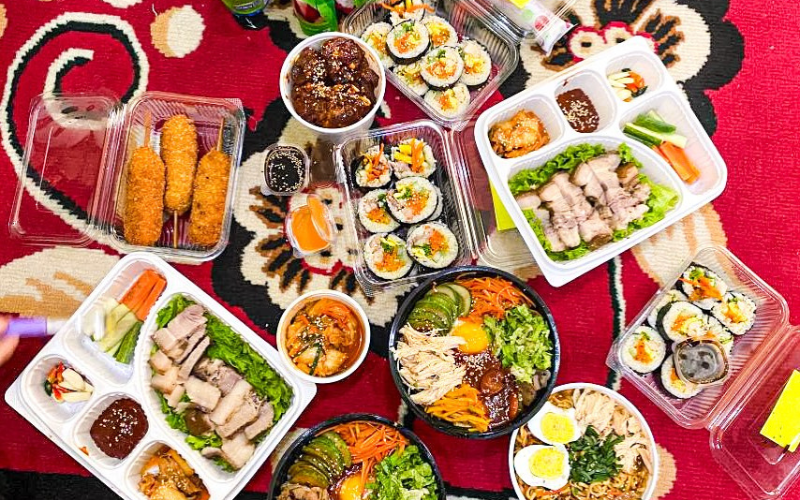
Q: As a news anchor and an entrepreneur, how do you balance both roles?
Balancing the two roles has been tough. During the pandemic, I managed to juggle both because my newsroom duties were mostly in the evenings. Once I hired staff for the kitchen, it became a bit easier to manage. My skills as a news anchor, like staying calm under pressure and engaging with people, have also been a big help in running the business.
Q: What message would you like to share with young people who wish to follow their passions?
Your passion is your most powerful asset. Take the first step, no matter how uncertain it feels. Start small, but dream big. Challenges are inevitable, but with determination, you can overcome them. Remember, there’s always light at the end of the tunnel.
Q: Lastly, what are your hopes and goals for Haona Chao in the future?
I dream of expanding Haona Chao beyond Manipur, introducing more people to Korean cuisine. I’d love to foster cross-cultural exchanges and create job opportunities for local youth. Ultimately, I want Haona Chao to become a household name in India, bridging cultures through the love of food.
This interview is a testament to the power of passion, resilience, and community. Through Haona Chao, Surbala Kangabam is not just serving food—she’s building connections, inspiring others, and keeping the spirit of Manipur alive.
How about this article?
- Like11
- Support3
- Amazing0
- Sad0
- Curious0
- Insightful1


